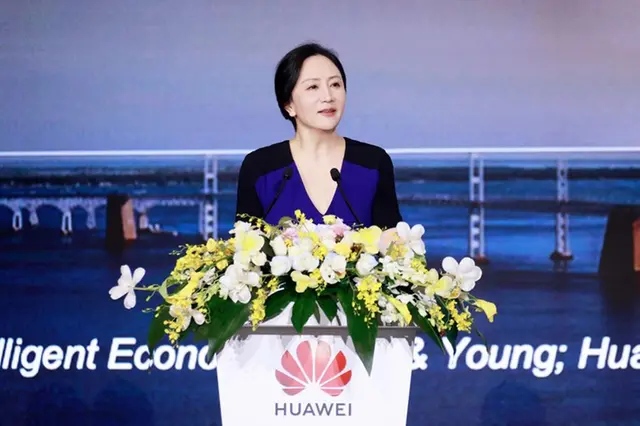Huawei recently held its 20th annual Global Analyst Summit (HAS) in Shenzhen. The summit was attended by more than 1,000 industry analysts, financial analysts, key opinion leaders, and media representatives from around the world, who gathered to discuss the status of the ICT industry, including development strategies, roadmaps for digital transformation, and future industry trends.
Sabrina Meng, Huawei’s Deputy Chairwoman, Rotating Chairwoman, and CFO, opened with a keynote. “Digitalization is a blue ocean for the whole industry,” she said. “Huawei will keep investing in domains like connectivity, computing, storage, and cloud.”
“We aim to provide our customers with digital infrastructure that has the simplest possible architecture with the highest possible quality – that delivers the best possible experience at the lowest possible costs. Our goal is to help organizations go digital in four stages: digitizing operations, building digital platforms, enabling platform-based intelligence, and putting intelligence to use. The time is ripe to thrive together in this new and exciting digital future.”
Meng went on to share three major takeaways from Huawei’s nearly 10 years of digital transformation experience. “First, strategy is essential. At its essence, digital transformation is about strategic planning and strategic choices. Any successful digital transformation has to be driven by strategy, not technology.”
“Second, data is the foundation,” she continued. “Data only creates value when it flows across an organization, so methodical data governance is key. Integrating data across different dimensions will create even greater value.”
“Third, intelligence is the destination. Data is redefining productivity. Digitizing operations and building digital platforms helps clean, visualize, and aggregate data, laying the foundation for digital transformation. Putting intelligence to use makes data on-demand, easier to understand, and actionable, taking digital transformation to the next level.”
Dr. Zhou Hong, President of Huawei’s Institute of Strategic Research, also spoke at the event. He shared Huawei’s hypotheses and visions for a future intelligent world, detailing how we can transform experience into structured knowledge, and lay the foundation for intelligence.
“Rethinking approaches to networks and computing is critical as we move towards an intelligent world,” said Zhou. “In networking, we have what it takes to move beyond the limits of Shannon’s theorems – as well as applications of his theory – to drive a 100-fold increase in network capabilities over the next decade. In computing, we will move towards new models, architectures, and components, and improve our ability to both understand and control intelligence. We will also continue to explore the use of AI for industry applications, science, and more.”
The two keynotes were followed by a panel discussion on the role that digital productivity plays in driving industry digitalization, the challenges industries face in their digitalization process, recommended actions, as well as expectations for industries in the process of building up their digital productivity. The panelists included Li Peng, Chief Expert of China Southern Power Grid Corporation and Managing Director of its Digital Power Grid Group; Liang Yongji, Executive Director of Engineering & Technology at the Airport Authority Hong Kong; Liu Hong, Head of Technology at GSMA in Greater China; and Charles Ross, Principal of Technology and Society at Economist Impact.
2023 marks the annual Huawei Global Analyst Summit’s 20-year anniversary.











